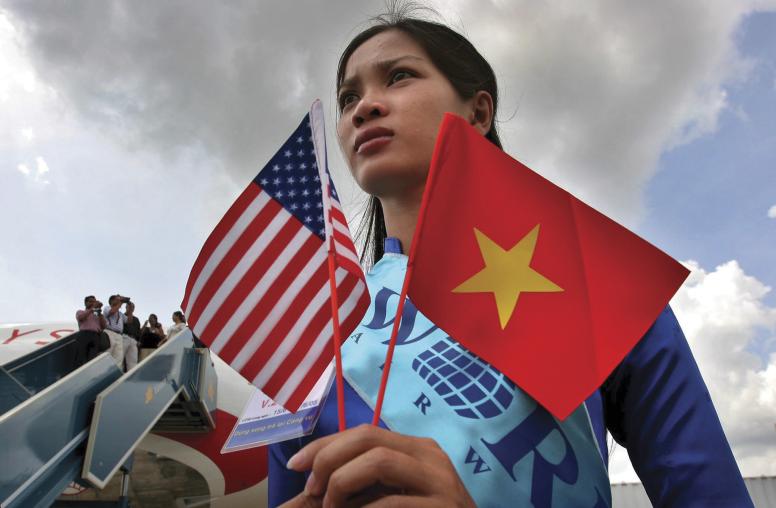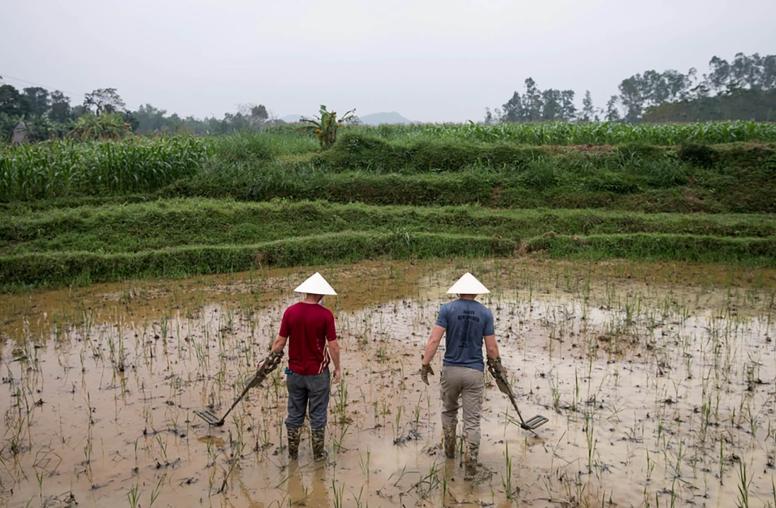2nd Annual Dialogue on War Legacies and Peace in Vietnam, Laos, and Cambodia
Please note: This event was presented in three parts over two days. Please check the agenda below for links to the recordings for each session.
The process of postwar reconciliation between the United States, Vietnam, Laos and Cambodia is a remarkable story of the 21st century. The legacies of U.S. military involvement in Southeast Asia, once a major obstacle to normal relations, have become the basis for a closer partnership. Over the past few decades, humanitarian cooperation among governments — supported by efforts from civil society, including veterans’ organizations — has assisted in the identification of the remains of missing personnel and helped to address the impacts of Agent Orange and unexploded ordnance. Meanwhile, people-to-people exchanges including young people and Southeast Asian Americans have fostered connectivity and built trust between our societies.
English
Vietnamese
On September 13 and 14, USIP hosted a three-part livestream of the Institute’s Dialogue on War Legacies and Peace, an annual event bringing government and non-governmental experts together to discuss the full range of war legacy issues and U.S. relations with Vietnam, Laos and Cambodia. It built on USIP’s experience in peacebuilding around the world, especially our flagship Vietnam War Legacies and Reconciliation Initiative, which aims to further advance reconciliation through people-to-people engagement; to build and sustain U.S. support for addressing the war’s legacies and MIA accounting in the coming decades; and to highlight stories of reconciliation as evidence that peace is possible and practical.
The event brought together diplomats, advocates and researchers to discuss how bilateral partnerships, including cooperation on war legacy issues, contributes to building a culture of peace while drawing lessons from U.S. engagement in Southeast Asia that could apply to conflicts elsewhere in the world. Roundtable discussions explored in depth how Vietnamese, Laotians and Cambodians are healing from wartime suffering and building a future based on trust and shared interests.
This event was livestreamed in both English and Vietnamese. Continue the conversation on Twitter using the hashtag #WarLegaciesAndPeace.
Agenda
September 13
2:00pm - 3:15pm: Building Peace in Southeast Asia
Watch in English Xem sự kiện này bằng Tiếng Việt
- Lise Grande, moderator
President and CEO, U.S. Institute of Peace - Mira Rapp-Hooper
Senior Director for East Asia and Oceania, National Security Council - Hoang Thi Thanh Nga
Deputy Chief of Mission, Embassy of Vietnam to the United States - Bounthanongsack Chanthalath
Deputy Chief of Mission, Embassy of Laos to the United States - Ann Marie Yastishock
Senior Advisor, Bureau for Human Capital and Talent Management, USAID - Tony Saich
Daewoo Professor of International Affairs and Director the Rajawali Foundation Institute for Asia, Harvard Kennedy School
September 14
8:30am – 9:00am: Keynote Presentation
Watch in English Xem sự kiện này bằng Tiếng Việt
- Senator Jeff Merkley (D-OR)
9:00am - 10:30am: Release of USIP Reports on Agent Orange in Vietnam
Watch in English Xem sự kiện này bằng Tiếng Việt
- Susan Hammond
Executive Director and Founder, War Legacies Project - Phan Xuân Dũng
Research Officer, Vietnam Studies Programme, ISEAS-Yusof Ishak Institute - Andrew Wells-Dang, moderator
Senior Expert, Southeast Asia, U.S. Institute of Peace
Lunch Keynote
Please note: The video is in English with Vietnamese subtitles.
- Kelly McKeague
Director, Defense POW/MIA Accounting Agency - David Yang
Vice President, U.S. Institute of Peace
3:45pm - 5:00pm: Further to Go: Next Steps in War Legacy Remediation and Peacebuilding
Watch in English Xem sự kiện này bằng Tiếng Việt
- Ambassador Marc Knapper
U.S. Ambassador to Vietnam - Ambassador Keo Chhea
Cambodian Ambassador to the United States - Melissa Brown
Deputy Assistant Secretary, Bureau of East Asian and Pacific Affairs, U.S. Department of State - General Nguyễn Văn Rinh
President, Vietnam Association for the Victims of Agent Orange/Dioxin - Phạm Lan Dung
Acting President, Diplomatic Academy of Vietnam - Andy Tomusiak
U.S.-Vietnam Youth Leadership Cohort - Tommy Nguyen
U.S.-Vietnam Youth Leadership Cohort



